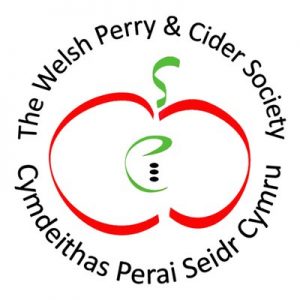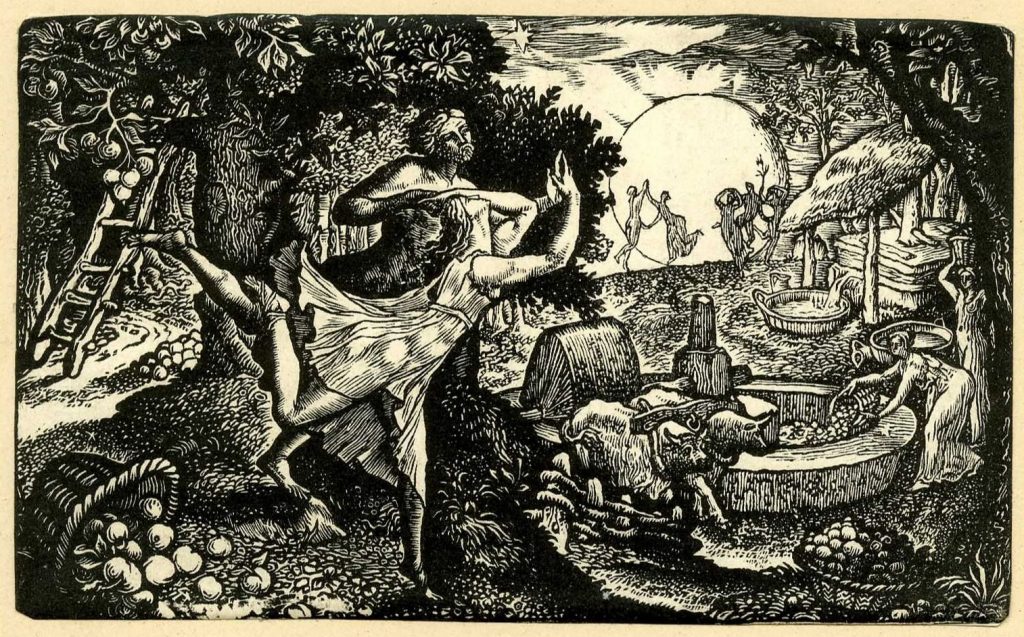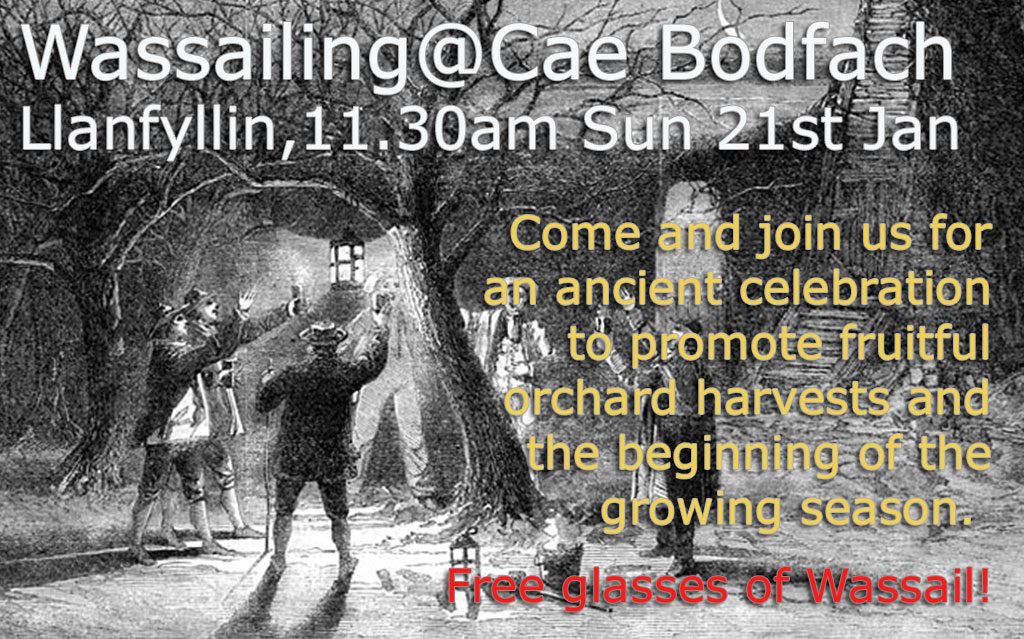
Wassail has its roots in In the cider-producing West of England (primarily the counties of Devon, Somerset, Dorset, Gloucestershire and Herefordshire) wassailing also refers to drinking (and singing) the health of trees in the hopes that they might better thrive. However it seems appropriate to create our own version to suit the ambitions of the Cae Bodfach orchard.
Traditions tell us that it has been held on either 12th night Jan 6th, or 17th Jan, depending on your calendar and we have picked the nearest Sunday which is the 14th Jan to celebrate and mark a vision for community food resilience and abundance that is embodied by our community heritage apple orchard.
 Whilst it may be interesting to ponder on the origins of the Wassail and whether it could be regarded as a something embraced by Welsh culture we are of course reminded that the apple tree, that most productive of plants at a temperate latitude of course originates in Kazakhstan.
Whilst it may be interesting to ponder on the origins of the Wassail and whether it could be regarded as a something embraced by Welsh culture we are of course reminded that the apple tree, that most productive of plants at a temperate latitude of course originates in Kazakhstan.
Our food choices have shaped the world and shaped our society and economy and this is a continual process. The choices we made in the past certainly echo down the years and still our shelves today, but hat and how ill our food choices of today shape the future.
Every apple variety is unique, occurring only once and can only be perpetuated by propagation and grafting. Cae Bodfach is a heritage orchard, each tree in there is a different species, many 100s of years old and most having been produced locally in Wales and Marches. Tastes change, environment changes and pests and diseases evolve, these heritage varieties might contribute to future food security in ways we cannot possibly guess presently.
We strongly believe this is something worth celebrating and building on and this year we have another 28 tree to plant as well as plans to establish a medical herb and dye garden, ‘Cae Ysbyty’. The vision is to create a wildlife friendly herb rich meadow and orchard that can be a beacon to inspire surrounding communities to do find their own versions.
An old rhyme goes:
Wassaile the trees, that they may beare
You many a Plum and many a Peare:
For more or lesse fruits they will bring,
As you do give them Wassailing.
An apple sapling, hung with toast, placed in a handcart and pushed around the streets during the Chepstow Mari Lwyd, 2014
The purpose of wassailing is to awake the cider apple trees and to scare away evil spirits to ensure a good harvest of fruit in the Autumn.[11] The ceremonies of each wassail vary from village to village but they generally all have the same core elements. A wassail King and Queen lead the song and/or a processional tune to be played/sung from one orchard to the next, the wassail Queen will then be lifted up into the boughs of the tree where she will place toast soaked in Wassail from the Clayen Cup as a gift to the tree spirits (and to show the fruits created the previous year). Then an incantation is usually recited such as
Here’s to thee, old apple tree,
That blooms well, bears well.
Hats full, caps full,
Three bushel bags full,
An’ all under one tree.
Hurrah! Hurrah!
Then the assembled crowd will sing and shout and bang drums and pots & pans and generally make a terrible racket until the gunsmen give a great final volley through the branches to make sure the work is done and then off to the next orchard. Perhaps unbeknown to the general public, this ancient English tradition is still very much thriving today. The West Country is the most famous and largest cider producing region of the country and some of the most important wassails are held annually in Carhampton and Dunster (Somerset) and Whimple and Sandford (Devon), all on 17 January (old Twelfth Night).

